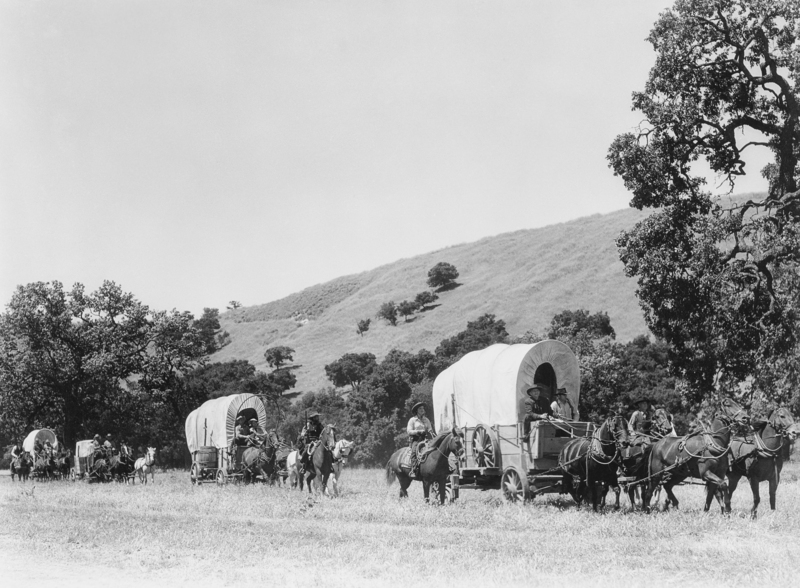Reduce Moving Day Anxiety with These Tips
Posted on 13/06/2025
Reduce Moving Day Anxiety with These Tips
Moving to a new home can be exciting, but it's also notorious for causing overwhelming stress. The disruption of routine, logistics, and emotional attachments turn moving into a top trigger for anxiety. However, moving day doesn't have to fill you with dread. With some strategic preparation and a proactive mindset, you can reduce moving day anxiety and make your relocation experience far more enjoyable.

Why Does Moving Day Cause Anxiety?
Understanding why moving day can be so stressful is the first step to overcoming that anxiety. Here are some common reasons:
- Uncertainty About the Future: Fear of the unknown, from new neighborhoods to unfamiliar layouts, makes us uneasy.
- Logistical Overwhelm: Packing, scheduling movers, redirecting mail, and switching utilities involve long to-do lists and multiple moving parts.
- Emotional Attachment: Saying goodbye to a familiar place, people, and memories can trigger sadness or worry.
- Time Pressure: Trying to get everything done on a tight schedule creates added pressure.
- Disruption of Routine: Breaking out of your comfort zone and routine is always challenging.
But there's good news: With proper planning and mindfulness, you can minimize moving stress and even enjoy the process. The following expert-backed strategies will help you keep your anxiety in check and ensure a smoother transition.
Expert Tips to Reduce Moving Day Stress and Anxiety
1. Start Planning Early
One of the most effective ways to reduce moving day anxiety is by giving yourself ample time. Anxiety often stems from feeling unprepared or rushed.
- Create a timeline with major milestones, such as when to hire movers, start packing, or set up utility transfers.
- Break down tasks into manageable weekly and daily lists.
- Start decluttering at least four weeks before your move. The less you have to pack, the easier your move will be.
By spreading out the workload over weeks or months, you'll avoid last-minute panic and have everything under control.
2. Make Comprehensive Moving Checklists
A detailed checklist is a lifesaver for lowering moving stress. List every task, deadline, and important contact in one place.
- Print or digitally create checklists for specific purposes: utilities, packing rooms, forwarding mail, scheduling professional services.
- Check off tasks as you complete them for a psychological boost and to keep things organized.
A visible, thorough checklist reduces the risk of forgetting critical steps and keeps your progress on track.
3. Declutter Before You Pack
Packing things you no longer use only wastes time and effort. Start by sorting belongings into four categories: keep, donate, sell, and discard.
- Hold a yard sale or sell online to lighten your load and make some extra cash.
- Donate usable items to local charities. You might be eligible for a tax deduction and help your community.
- Properly dispose of old, broken, or hazardous items following local regulations.
Decluttering not only reduces moving anxiety but also gives you a fresh start in your new home.
4. Gather Quality Packing Supplies Early
Collect strong boxes, packing tape, bubble wrap, labels, and markers well ahead of moving day. Insufficient or flimsy materials can cause last-minute stress and even damage valuable items.
- Ask supermarkets or retail stores for extra boxes.
- Invest in specialty boxes for delicate or oddly shaped items.
- Label every box clearly with its contents and destination room.
- Color code boxes for each room to make unloading faster and easier.
5. Pack Smart--Room by Room
Instead of random packing, focus on one room at a time. It makes the process less overwhelming and keeps you organized.
- Pack seldom-used items first, such as seasonal decorations, books, or guest linens.
- Leave essentials for last--you'll need these items right up until moving day (think kitchen gadgets, toiletries, and daily clothing).
Packing systematically helps reduce anxiety on moving day by avoiding chaos and misplaced belongings.
6. Prepare a Moving Day Essentials Bag
Don't find yourself searching through boxes for your phone charger or toothbrush. Prepare a "first night" bag with essentials for each family member:
- Important documents (ID, passports, lease agreements)
- Snacks and bottled water
- Medications and first aid supplies
- Phone chargers and basic electronics
- A change of clothes and basic toiletries
This simple step prevents frantic rummaging and helps you settle in comfortably on your first night.
7. Notify Important Parties Ahead of Time
Avoid future headaches by updating your address with the following organizations before you move:
- Post office (for mail forwarding)
- Utility companies (electric, water, internet, gas, garbage)
- Bank, credit card companies, and insurance providers
- Doctors, dentists, and schools
- Subscription services and streaming platforms
Making these updates ahead of time ensures you won't miss bills, lose important mail, or face disruptions in essential services.
8. Choose a Reputable Moving Company
Whether you're moving locally or crossing the country, a trusted moving company can be a game-changer in reducing anxiety during a move.
- Read online reviews on Google, Yelp, or Facebook to gauge reputation.
- Ask for quotes from multiple companies to compare pricing and services.
- Ensure they are licensed and insured--ask for proof!
- Clearly communicate your needs, including fragile or oversized items.
A professional team alleviates some physical and mental burdens, freeing you to focus on other priorities.
9. Look After Your Mental and Physical Wellbeing
It's easy to neglect self-care amidst the whirlwind of moving. Yet, prioritizing yourself is crucial for managing moving day anxiety.
- Practice deep breathing or meditation before and during the move.
- Get enough sleep in the weeks leading up to and after your move.
- Eat nutritious meals--don't rely solely on takeout and snacks.
- Take breaks as needed. Step outside for fresh air and sunshine.
- Ask for help--friends or family may be happy to lend a hand or offer moral support.
10. Prepare Children and Pets for the Move
Kids and animals often sense and absorb your stress, which can magnify moving day anxiety. Help them adjust with these strategies:
- Talk to kids about the move well in advance and involve them in planning or packing.
- Visit the new home or neighborhood to build excitement and familiarity.
- Keep routines stable wherever possible during and after the move.
- Prepare a comfort kit for your pet and consider pet-sitting arrangements during the move for less chaos.
11. Stay Organized on Moving Day
The day itself can still feel chaotic, but organizational tricks can provide structure and calm.
- Assign specific jobs to helpers--such as loading the truck, directing boxes, or cleaning up.
- Use your color-coded labels to speed up the unloading process.
- Double-check all rooms, closets, and utility shut-offs before locking the door for the last time.
Being methodical helps prevent costly mistakes (like forgotten drawers or paperwork) and gives you confidence throughout the process.
12. Settle In Gradually
Once you arrive at your new place:
- Unpack essentials first--kitchen, bedding, and bathroom supplies.
- Take your time organizing the rest. You don't have to do it all in one day!
- Meet your neighbors and explore the area at your own pace.
Remind yourself there's no rush. Slowly turning your new house into a cozy, welcoming home can be fun and rewarding.
Additional Coping Strategies for Moving Day Anxiety
Practice Mindfulness and Acceptance
Moving will always involve some uncertainty and change. Accept emotions as they come, and remind yourself that nerves are normal. Practicing mindfulness, meditation, or simply taking deep breaths can ground you when you feel overwhelmed.
Enlist a Support System
You don't have to do it alone! Friends, family, or professional movers can make all the difference. Even just having a buddy to talk to on moving day can be hugely comforting.
Keep Perspective
Remind yourself of the positives--a new adventure, fresh opportunities, meeting neighbors, and more. Focusing on the excitement of new beginnings can help drown out fear.
Frequently Asked Questions About Moving Anxiety
How far in advance should I start preparing for my move?
Experts recommend beginning your preparations at least 6-8 weeks before your move. Start decluttering, booking moving companies, and scheduling important appointments as early as possible for a smoother transition.
What should I do if my anxiety becomes unmanageable?
If your anxiety is overwhelming, consider speaking to a counselor or mental health professional. Sometimes, just talking through your worries with someone you trust can provide significant relief.
Can moving companies help reduce moving day stress?
Absolutely! Professional movers take care of packing, heavy lifting, and logistics, freeing you to focus on settling in and managing your well-being. Choose a reputable, insured company to ensure a positive experience.

Conclusion: Embrace Your Move With Confidence
Moving might always come with a touch of nerves, but it's also a chance for growth, renewal, and fresh experiences. By following these proven tips to reduce moving day anxiety, you can transform relocation from a dreaded chore into a smooth, even enjoyable journey. Start planning early, stay organized, and don't hesitate to ask for help. With proactive steps and the right mindset, you'll navigate moving day like a pro--ready to make new memories in your next home.
Further Resources
- Coping with Moving Stress - MHA National
- Tips to Reduce Stress During a Move - Psychology Today
- How to Make Moving Less Stressful - Moving.com
Ready to begin your move? Take these steps now and face moving day with peace-of-mind and excitement for your next chapter!
Latest Posts
Elevate Your Move-Out with Top-Notch Cleaning Strategies
How Professionals Prevent Damage During Piano Moving
How to manage and store an unused freezer
